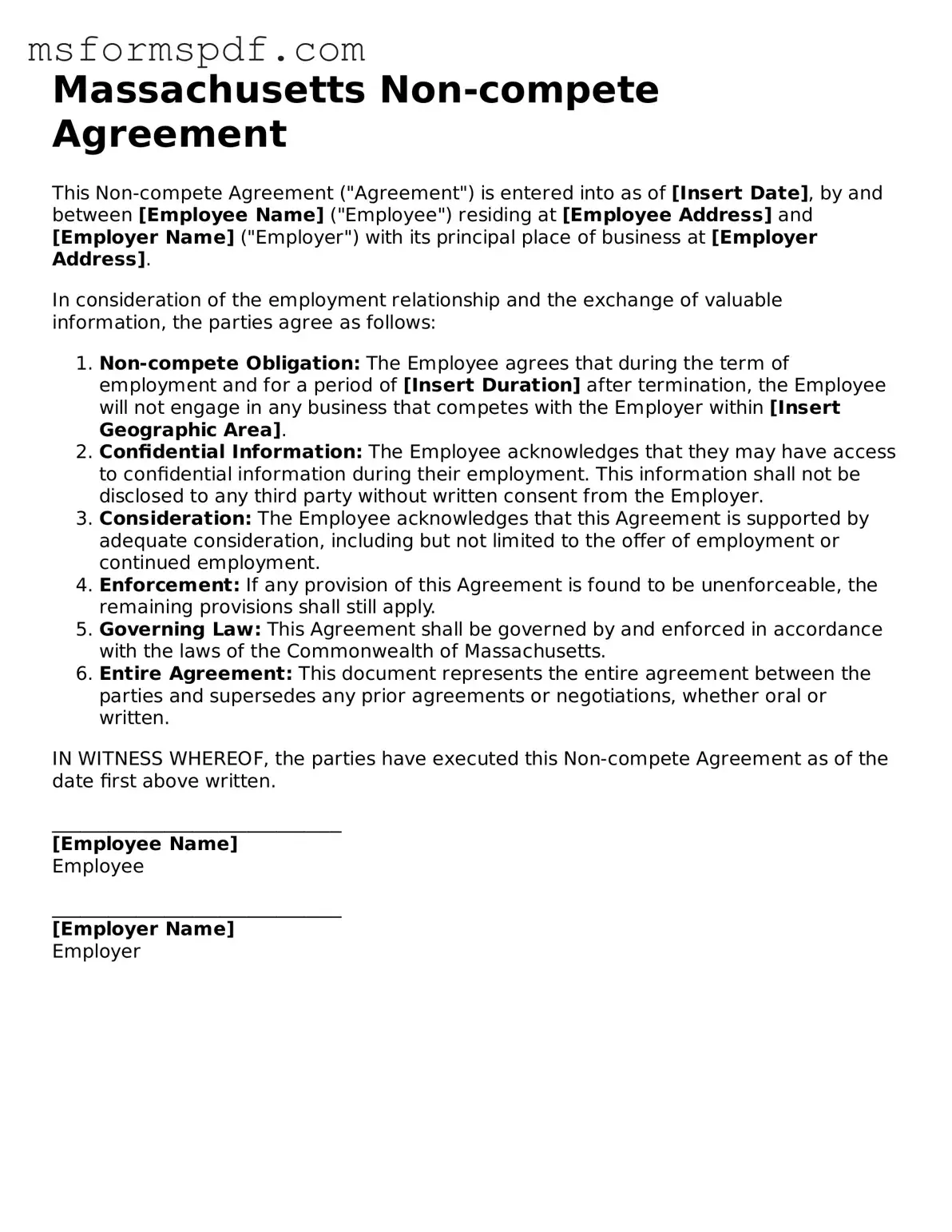-
What is a Non-compete Agreement in Massachusetts?
A Non-compete Agreement is a contract between an employer and an employee. It restricts the employee from working for competitors or starting a competing business for a certain period after leaving the company. In Massachusetts, these agreements must meet specific legal requirements to be enforceable.
-
Are Non-compete Agreements enforceable in Massachusetts?
Yes, Non-compete Agreements can be enforceable in Massachusetts, but they must follow the state's laws. The agreement must be reasonable in scope, duration, and geographic area. It should also protect a legitimate business interest.
-
What are the requirements for a valid Non-compete Agreement?
- The agreement must be in writing.
- It must be signed by both the employer and the employee.
- The employee must receive fair consideration, such as a job offer or promotion.
- The terms must be reasonable and not overly restrictive.
-
How long can a Non-compete Agreement last?
In Massachusetts, a Non-compete Agreement cannot last more than one year after the employee leaves the company. However, in some cases, a shorter duration may be more appropriate depending on the circumstances.
-
What happens if I violate a Non-compete Agreement?
If you violate a Non-compete Agreement, the employer may take legal action against you. This could result in a court enforcing the agreement, which may lead to restrictions on your employment or financial penalties.
-
Can I negotiate the terms of a Non-compete Agreement?
Yes, you can negotiate the terms of a Non-compete Agreement. It's essential to discuss any concerns you have with your employer before signing. Clear communication can lead to a more favorable agreement for both parties.
-
Are there any exceptions to Non-compete Agreements?
Yes, certain exceptions exist. For example, Non-compete Agreements cannot be enforced against employees who are terminated without cause. Additionally, the agreement may not apply to employees who are laid off.
-
How can I enforce my rights under a Non-compete Agreement?
If you believe your rights under a Non-compete Agreement have been violated, you may need to seek legal advice. An attorney can help you understand your options and may assist you in enforcing the agreement if necessary.
-
What should I do if I’m asked to sign a Non-compete Agreement?
Take the time to read the agreement carefully. Consider discussing it with a legal professional to understand its implications fully. Ensure you are comfortable with the terms before signing.
-
Where can I find a Non-compete Agreement form for Massachusetts?
You can find templates for Non-compete Agreements online. However, it's advisable to customize the form to fit your specific situation and ensure it complies with Massachusetts laws. Consulting with a legal professional can also provide guidance.

